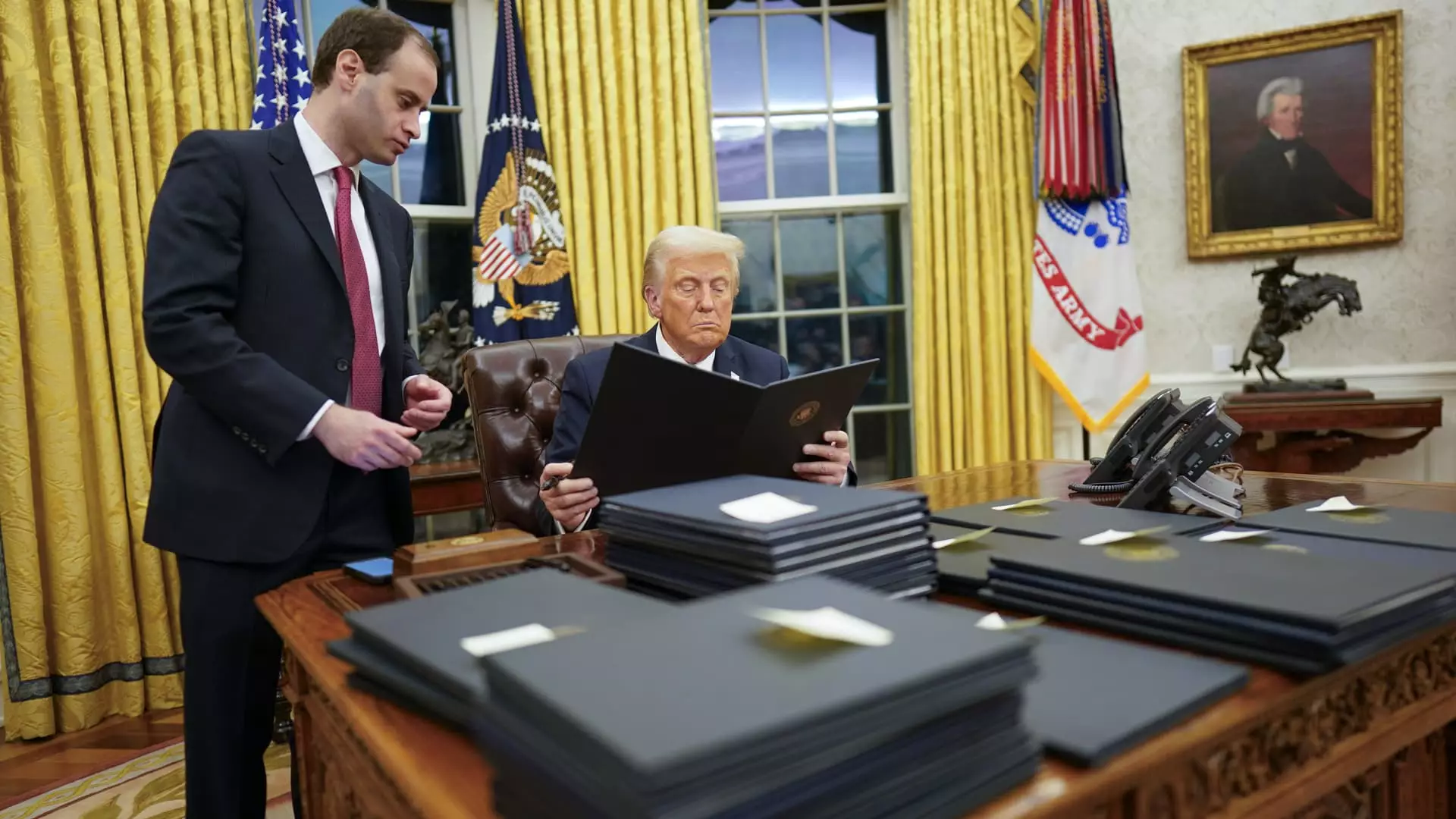In an audacious bid to reshape America’s energy policy, President Donald Trump wasted no time in his first hours in office, unleashing a torrent of executive orders aimed at revitalizing the fossil fuel industry and dismantling the previous administration’s framework for addressing climate change. This pivot has sparked significant debate and raised numerous questions regarding its long-term impact on energy production, environmental policies, and the broader energy landscape.
One of the prevailing narratives surrounding Trump’s energy orders is the expectation from major oil and gas industry leaders, such as the CEOs of ExxonMobil and Chevron, that production levels will remain tethered to market forces. Despite Trump’s enthusiastic proclamations of “drill, baby, drill,” experts maintain that such a rallying cry may yield limited results. The U.S. has consistently outpaced other nations in oil and gas production over recent years, highlighting the energy sector’s resilience and market dominance regardless of political machinations.
Nevertheless, Trump’s assertive stance signifies a drastic ideological shift away from President Biden’s climate-centric policies. The current administration looked to transition towards renewable energy sources and significantly reduce fossil fuel dependence in an effort to combat climate change. In stark contrast, Trump’s policies appear designed not only to cement fossil fuels’ place in the energy economy but also to position the U.S. as a formidable global energy leader, potentially diluting the progress made toward sustainable energy.
A National Energy Emergency?
Central to Trump’s energy agenda is the declaration of a “national energy emergency.” He postulates that the U.S. faces a precariously inadequate energy supply coupled with an unreliable electrical grid—a scenario he claims could compromise national security. Consequently, he has charged federal agencies to identify emergency powers that would facilitate an increase in fossil fuel production and infrastructure development.
This narrative is further fueled by projections indicating a surge in electricity demand driven by advancements in technology, such as artificial intelligence, and a resurgence in domestic manufacturing. Yet, the largest grid operator—PJM Interconnection—has already flagged potential electricity shortages stemming from the rapid decommissioning of coal plants without sufficient replacement capacity. While Trump’s urgency may seem justified in light of these warnings, a balanced energy strategy that enhances renewable energy alongside fossil fuels remains a crucial conversation not fully addressed.
Abandoning the Paris Agreement
Arguably, one of Trump’s most controversial moves is the recommencement of the U.S. withdrawal from the Paris Climate Agreement. Designed to cap global warming to 1.5 degrees Celsius, this international accord represents a fundamental global commitment to combat climate change. Trump’s decisive actions, facilitated by a swift notification to the U.N. Secretary-General, underscore an explicit rejection of collaborative, global efforts to address pressing environmental issues.
In conjunction with this, Trump has also moved to dismantle many of the ambitious clean energy targets set forth by the previous administration, effectively signaling a retreat from any aspirational goals surrounding electric vehicles and carbon neutrality.
While Trump’s orders undoubtedly reflect a political mandate, many of these actions may encounter significant legal challenges. Several judicial precedents indicate that Trump’s ability to overturn environmental protections is fraught with complexities. For instance, his previous attempt to revoke protections in coastal waters was nullified by a federal court, suggesting that ongoing litigation could be a major hurdle in rolling back the regulatory framework established to safeguard environmental integrity.
Also noteworthy is Trump’s directive to revoke the Biden administration’s ban on offshore oil drilling, which raises questions about jurisdiction and authority. Given past legal rebuffs against similar maneuvers, Trump’s desire to expedite fossil fuel exploration may encounter substantial resistance through the judicial system.
Beyond the focus on fossil fuel initiatives, Trump’s administration is also positioning itself against renewable energy projects. By halting new renewable leases and directing funds away from initiatives supporting electric vehicle infrastructure, the administration signals a comprehensive strategy to pivot away from clean energy. This counterproductive approach raises critical concerns about the future landscape of American energy and innovation.
As Trump’s administration unfolds, the push for expanded fossil fuel production juxtaposed against the necessity for a sustainable and clean energy future presents an intricate challenge. Striking a balance that serves both immediate energy needs and longer-term environmental goals remains a daunting yet vital ambition for the nation. The discourse surrounding these policies will no doubt evolve, requiring constant vigilance and advocacy from environmental groups, industry stakeholders, and the general public alike.



Leave a Reply